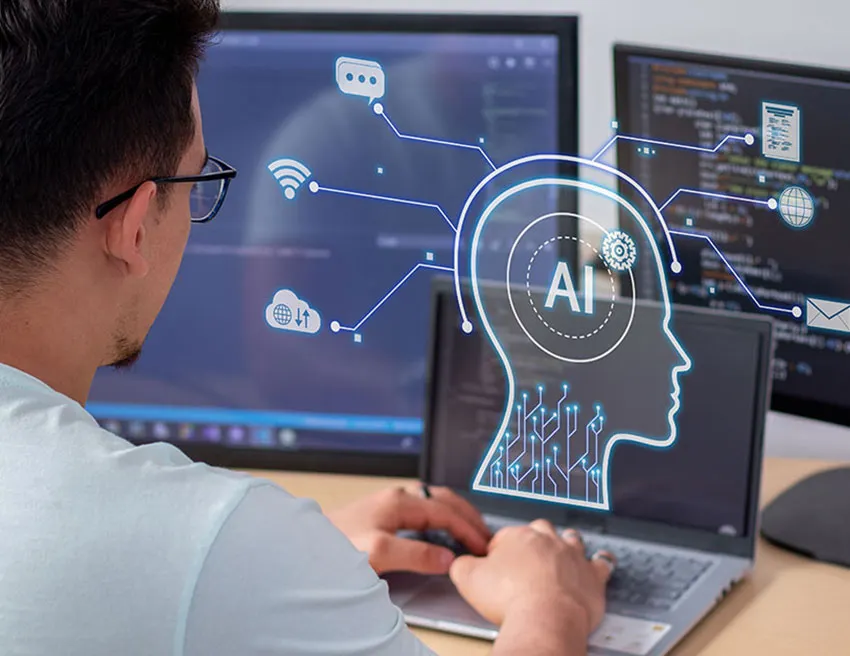The Future of Movies is Here
The world of entertainment is evolving rapidly, and artificial intelligence (AI) is at the center of this transformation. From scriptwriting to animation and even voiceovers, AI-generated movies are becoming more common. While this innovation brings exciting possibilities, it also raises serious ethical concerns. Will AI films revolutionize the industry or put creative professionals out of work? Let’s dive into this new era of cinema.

How AI-Generated Movies Are Made
AI-generated movies are created using advanced algorithms and machine learning models that can mimic human creativity. Here’s how it works:
1. Scriptwriting by AI
- AI tools like ChatGPT and OpenAI’s GPT models can generate entire movie scripts based on a few prompts.
- They analyze thousands of existing scripts to understand storytelling patterns and character development.
- AI can write dialogue, suggest plot twists, and even refine scripts based on feedback.
2. AI-Generated Animation and Visuals
- AI-powered tools like Deep Dream, RunwayML, and DALL-E create stunning visuals without human animators.
- Machine learning algorithms study real-life movements to animate characters realistically.
- AI can even create deepfake technology, bringing deceased actors back to life on screen.
3. AI-Generated Voices and Music
- Text-to-speech AI can clone human voices, reducing the need for voice actors.
- AI-generated music tools like AIVA and Amper Music compose original soundtracks.
- AI can match voice tones to emotions, making characters sound more lifelike.

Advantages of AI-Generated Movies
While AI in filmmaking is still developing, it offers several benefits:
1. Cost-Effective Production
- AI reduces the need for large production teams, cutting down on expenses.
- It minimizes costs related to hiring actors, directors, and animators.
- Independent filmmakers can create high-quality movies on a budget.
2. Faster Movie Production
- AI can generate scripts, visuals, and music in a fraction of the time humans take.
- Post-production tasks like editing, dubbing, and CGI effects are streamlined.
- Movies can be released quicker, meeting the growing demand for content.
3. Unlimited Creative Possibilities
- AI-generated movies can explore unique storytelling styles that humans might not imagine.
- AI can produce realistic simulations of different time periods and futuristic worlds.
- It enables interactive movies where viewers influence the storyline in real time.
Ethical Concerns Surrounding AI in Filmmaking
Despite the advantages, AI-generated movies come with serious ethical issues. Here are some key concerns:
1. Job Loss in the Film Industry
- AI could replace screenwriters, animators, voice actors, and directors.
- Many creative professionals fear losing their jobs to automation.
- If AI dominates, filmmaking may lose the human touch that makes stories relatable.
2. Copyright and Intellectual Property Issues
- AI-generated content often pulls from existing works, raising plagiarism concerns.
- Who owns an AI-generated movie—the AI, the programmer, or the studio?
- Legal battles over AI-created content are already beginning to emerge.
3. Deepfake and Misinformation Risks
- AI can recreate the likeness of actors without their consent.
- Deepfake technology can be misused to create misleading or harmful content.
- AI-generated fake videos could spread misinformation, blurring the line between reality and fiction.
4. Ethical Use of AI in Storytelling
- AI lacks emotional depth and human intuition, which are essential for storytelling.
- Some fear AI could promote biased narratives based on the data it’s trained on.
- Can AI truly understand human struggles, emotions, and experiences?

Hollywood’s Reaction to AI in Filmmaking
Hollywood is split on the use of AI in movies. Some studios see AI as an opportunity, while others worry about its impact on creativity.
1. Big Studios Experimenting with AI
- Companies like Disney, Netflix, and Warner Bros. are testing AI for script analysis and CGI.
- AI helps studios decide which movies have the highest potential for success.
- AI is already used in de-aging actors, CGI enhancements, and automated editing.
2. Actors and Writers Pushing Back
- Many actors worry about AI cloning their voices and images without permission.
- Screenwriters argue that AI can’t replace the human creativity behind great scripts.
- Unions like the Writers Guild of America (WGA) are demanding regulations on AI use in filmmaking.
The Future of AI in Movies: A Balance Between Tech and Creativity
AI is here to stay in the film industry, but its role needs careful regulation. Instead of replacing humans, AI should be used as a tool to enhance creativity.
Possible Solutions to Ethical Challenges:
- Implement laws protecting actors’ likenesses and AI-generated content.
- Encourage collaboration between AI and human creators rather than replacement.
- Develop AI that supports filmmakers rather than taking over their roles.
- Educate audiences about the differences between AI-generated and human-made content to prevent misinformation.
Conclusion: Will AI-Generated Movies Rule the Future?
AI-generated movies are opening new doors in the entertainment world, but they also bring challenges that cannot be ignored. While AI can speed up production, reduce costs, and introduce fresh storytelling methods, it must not replace the creativity and emotions that make movies special. The future of filmmaking depends on striking the right balance between innovation and Ai and ethics. Will AI and humans work together, or will technology take over Hollywood? Only time will tell.
Do Follow USA Glory For More Updates.






